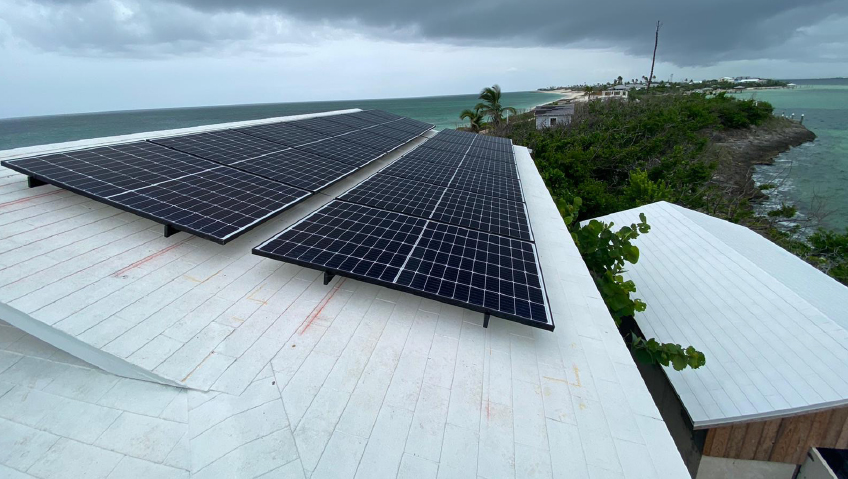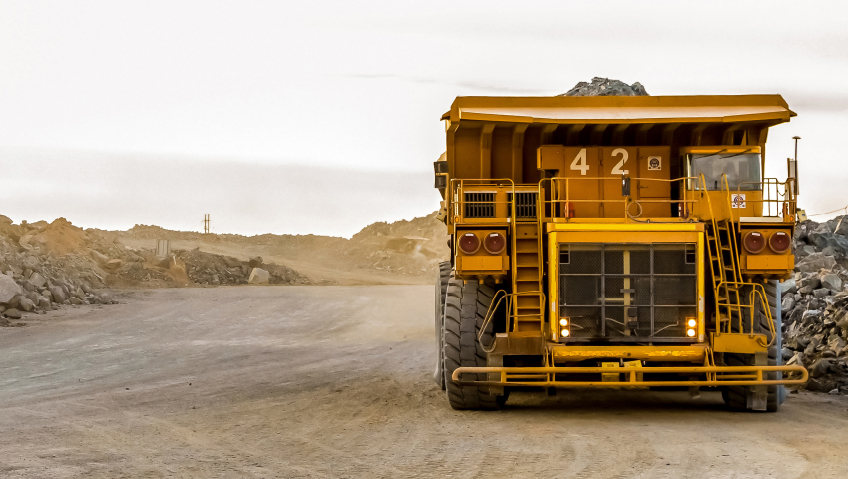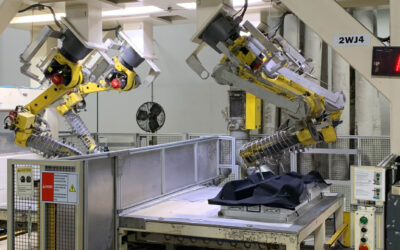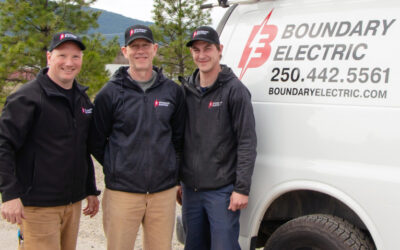Pennsylvania-based Fortress Power got its start when electrical engineer Jing Yu and longtime business manager Barry Moore decided to provide a better solar energy storage solution. The industry insiders recognized the need for a reliable battery to store solar energy produced during the day, when most people are not at home to take advantage of the power. By the time most consumers come home from work, the sun is going down and the time for harnessing solar energy is waning. “There is a need to store the excess power during the day and use it when you need it,” Yu says.
The startup caught the attention of a major customer almost immediately. The Southeastern Pennsylvania Transportation Authority (SEPTA) – a regional public transportation authority operating buses, rapid transit, commuter rail, light rail, and electric trolleybus services for nearly 4 million people in the Philadelphia area – ordered the company’s batteries.
The product was such a success with SEPTA that Fortress Power quickly expanded into other spaces. “It was very natural for us to catch the next big wave in the renewable energy space,” Yu remembers.
The company uses Lithium Iron Phosphate technology, the safest lithium technology in the industry – which is why higher risk customers like SEPTA choose the solution. Many competitor solutions use cobalt-based Lithium-Ion battery, which has very poor thermal stability. “It is a great solution for automotive because it has a higher power density, so you can pack more batteries in a limited space,” Yu says. “But the downside is it has volatility because the cobalt element can be explosive. So if the temperature goes too high, and the BMS – battery management system – fails to protect the battery cell and the battery cell temperature raises up, you can cause explosions.”
In addition to being a safer option, Lithium Iron Phosphate technology has a much longer lifespan than competing technologies. Fortress Power guarantees its batteries for up to 6,000 cycles – that’s 15 to 16 years of use – while competitor cobalt-based Lithium-Ion batteries last for only 3,000 cycles, or three to seven years. That’s less than half the lifespan of Fortress Power’s solution. Lithium Iron technology is also environmentally friendly and fully recyclable.
An increasing number of organizations like SEPTA, as well as homeowners, are choosing to store solar energy. The advantages are clear and numerous. For starters, without a storage system, solar systems turn off when the grid goes down, leaving people without power when they need it most. Solar storage gives consumers the security of a reliable power source regardless of what happens with the grid.
Another advantage is that solar storage dramatically slashes waste. Traditionally, power plants are located many miles away from the homes and businesses they power. The energy must travel through hundreds – even thousands – of miles of transmission lines, suffering over 60 percent power loss before reaching its final destination. “It’s not efficient,” Yu says, “plus you also generate pollution.” The advantage of stored solar energy “is that you can generate the power locally and consume locally.”
Solar storage saves consumers money. For starters, it keeps consumers from having to pay peak rates on their traditional energy bills. “In states like California, you are paying so-called peak time rates,” Yu explains. “Somewhere between 4:00pm to 9:00pm, you are paying [what] could be two or three times, or even sometimes four times more expensive.” Consumers with solar storage save money by using stored solar power during peak times when the sun is down and energy consumption is up and draw from the grid while the sun is up and peak rates are not in effect. “That’s a good way to save on your electricity costs.”
Business owners subject to the Kilowatt charge benefit from solar storage particularly in places like New York City where the price is especially high. “That is so expensive,” says Yu. “Most of the time over 50 percent of your electrical bill actually is KW charge and to solve that issue, to bring down your bill, [you can] add battery storage incorporated with solar.”
Solar storage is also a money saver for consumers who live in states without net metering. Net metering allows people to send excess solar power back to the utility company for a credit. Without net metering, any excess power generated during the day is going to waste if it isn’t stored, so it just makes good financial sense to install a battery and save the energy for later.
Consumers can also save money via a 26 percent federal tax credit. “So there is high incentive for people to go with that solar storage,” Yu says. Investing in solar storage is an affordable investment with immediate, measurable benefits, she summarizes. “It is a tangible asset and really helps you to reduce your electricity cost.”
Fortress Power makes the biggest battery on the market for residential applications, setting the company apart from competitors that offer the same Lithium Iron Phosphate technology. “Our clients really appreciate the large storage capacity we offer,” Yu says. These large capacity batteries are easy to install and the technology is scalable, making them an ideal solution for light commercial as well as residential. For example, if you “run a high end restaurant, you don’t want a power outage, so you put in a battery storage there,” she says. In addition, Fortress Power offers a climate-resistant enclosure that is popular with customers located in the Caribbean who need a solution able to withstand tropical weather conditions.
A superior battery is crucial, but Fortress Power goes a step beyond that. “In addition to the high quality product, it’s also very important that you have great service. So we have engineers on staff and they take phone calls and we get back to the customer – always on the same day.” The company’s dedication to customer service covers not only technological support, but also reliable delivery. With three fully stocked warehouses spread across the United States, Fortress Power is able to ship its products almost immediately. This ability stands out in an industry known for its delays. Competitors might keep their dealer waiting “for six months, eight months, or even a year on the products, which really kills the profitability,” Yu shares.
Looking to the future, Fortress Power uses a smart digital processer in its battery management systems so they are IOT ready when that option becomes available. “The idea is hopefully, in the future, that you can also turn off or on your battery through Amazon Echo,” Yu says. With just a few words, Alexa could manage your solar storage without your having to lift a finger. “In the future, using your mobile phone, you can pretty much manage everything that you have in your house or in your car.” Making solar battery storage a part of home automation will require an industry-wide effort, she adds, but she is optimistic the goal will be accomplished. She also believes future systems will have the capability to turn on and off automatically via smart load management.
Certainly, Fortress Power has enjoyed massive growth over the past year, despite the pandemic. “We are enjoying two or three hundred percent annual growth and we foresee that growth is going to continue going forward,” says Yu. COVID-19 did create complications for the company, particularly in sourcing battery components, but that issue was resolved in the second quarter. More impactful was the fact that the pandemic made consumers more aware of the need for a reliable backup power source in case of emergencies.
The team is eager to continue the company’s remarkable growth; the key is to keep offering a superior solution. “We want to make sure that the product we offer has the best quality and [that we are] providing the fastest service that we have for our customer,” Yu says. This commitment has put Fortress Power on the map and is sure to keep the company moving forward as an industry leader.













